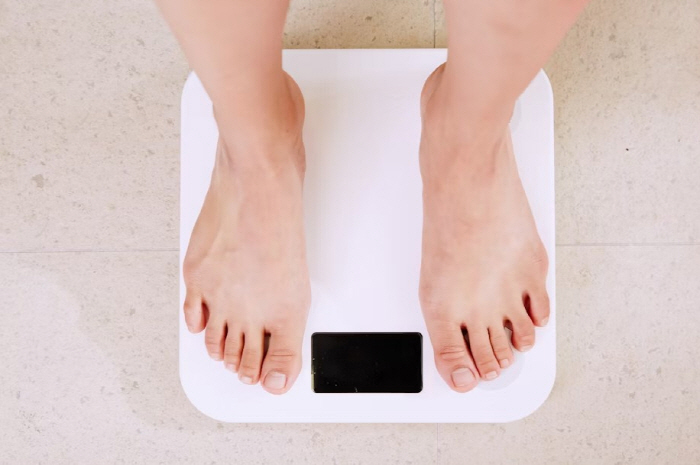
The Rising Concern of Excessive Dieting and Its Impact on Bone Health
In recent years, there has been a noticeable increase in the number of young people engaging in dieting. With various methods being promoted, some individuals are taking extreme measures to lose weight quickly, such as fasting or following restrictive diets. However, these practices can have serious consequences for the body, particularly for those with pre-existing conditions like back diseases.
Excessive dieting can be detrimental to bone health, especially for individuals who already suffer from back issues. When the body is deprived of essential nutrients due to sudden fasting or unbalanced eating habits, it can weaken the immune system and compromise bone density. This can lead to long-term damage, making the bones more susceptible to fractures and other complications.
According to recent statistics, the number of osteoporosis patients has risen significantly over the past few years. In 2023, there were approximately 1,203,043 women and 73,179 men diagnosed with the condition, indicating a stark gender disparity. Women are more likely to develop osteoporosis, often due to hormonal changes during menopause, which can disrupt calcium metabolism and lead to a loss of bone mass.
Orthopedic surgeon Park Dong-woo from Mirae Bon Hospital has observed a growing trend of patients visiting the clinic due to knee joint or spinal damage linked to excessive dieting. He emphasizes that the rapid progression of osteopenia and osteoporosis around the age of 50—when menopause begins—can be exacerbated by unhealthy dietary habits. This has led to an increasing number of younger individuals, particularly housewives in their 30s and 40s, experiencing early symptoms of the disease.
The Risks of Unhealthy Diets on Bone Health
Osteopenia and osteoporosis are conditions that occur when bone density decreases, making the bones fragile and prone to breaking. These conditions are commonly associated with calcium deficiency and hormonal imbalances, especially in women. However, recent cases show that even younger women are developing similar issues due to extreme dieting practices.
One such practice is the "one-food diet," where individuals consume only a single type of food for extended periods. This not only leads to nutritional imbalances but also deprives the body of essential minerals like calcium, which are crucial for maintaining strong bones. Over time, this can result in osteopenia, an early stage of osteoporosis, and eventually lead to more severe bone-related problems.
For individuals with existing back conditions, excessive dieting can worsen their symptoms. Weakened bones due to osteopenia can contribute to degenerative changes in the spine and discs, increasing the risk of spinal injuries such as herniated discs or compression fractures. It is important for those with back issues to avoid unbalanced diets or intense exercise regimens that could further strain their bodies.
Preventive Measures and Lifestyle Changes
Preventing osteoporosis requires a combination of proper nutrition, regular physical activity, and lifestyle adjustments. A balanced diet rich in calcium and vitamin D is essential for maintaining bone health. Foods such as milk, leafy green vegetables, fish with bones, and seaweed are excellent sources of calcium. Additionally, moderate exposure to sunlight helps the body synthesize vitamin D, which plays a vital role in calcium absorption.
Exercise is another key factor in preventing bone loss. Low-impact activities like walking, climbing stairs, and cycling can help strengthen bones without putting excessive stress on the joints. Swimming is also beneficial, as the buoyancy of water reduces pressure on the body while improving flexibility and muscle strength.
Lifestyle changes such as avoiding smoking and limiting alcohol consumption are equally important. Smoking has been linked to a higher risk of osteoporosis, as it accelerates bone loss and can even speed up the onset of menopause. Similarly, excessive alcohol intake can interfere with the body's ability to absorb calcium, further weakening bones.
Practical Tips for a Healthy Lifestyle
To maintain strong bones and overall well-being, consider the following recommendations:
- Calcium Intake: Aim for 1,000–1,500 mg of calcium daily through food sources or supplements.
- Vitamin D: Consume 400 IU of vitamin D per day, or 800 IU if at high risk of deficiency. Sunlight exposure is also beneficial for natural synthesis.
- Exercise Regularly: Engage in light to moderate exercises such as walking, cycling, or swimming to improve bone density.
- Maintain Good Posture: Proper posture supports spinal health and reduces the risk of back pain.
- Avoid Harmful Habits: Refrain from smoking and excessive alcohol consumption, as they negatively impact bone health.
By adopting a healthy diet and lifestyle, individuals can reduce their risk of developing osteoporosis and related conditions. It is essential to prioritize long-term well-being over short-term weight loss goals, ensuring that health remains the top priority.
